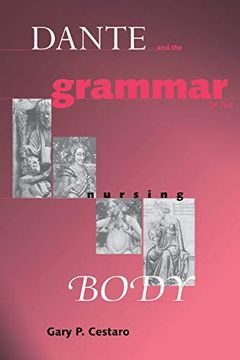Share
Dante and the Grammar of the Nursing Body (William and Katherine Devers Series in Dante and Medieval Italian Literature) (in English)
Gary P. Cestaro (Author)
·
University Of Notre Dame Press
· Paperback
Dante and the Grammar of the Nursing Body (William and Katherine Devers Series in Dante and Medieval Italian Literature) (in English) - Gary P. Cestaro
$ 42.11
$ 57.14
You save: $ 15.04
Choose the list to add your product or create one New List
✓ Product added successfully to the Wishlist.
Go to My WishlistsIt will be shipped from our warehouse between
Monday, May 20 and
Tuesday, May 21.
You will receive it anywhere in United States between 1 and 3 business days after shipment.
Synopsis "Dante and the Grammar of the Nursing Body (William and Katherine Devers Series in Dante and Medieval Italian Literature) (in English)"
Dante and the Grammar of the Nursing Body takes a serious look at Dante's relation to Latin grammar and the new "mother tongue"-Italian vernacular-by exploring the cultural significance of the nursing mother in medieval discussions of language and selfhood. Inspired by Julia Kristeva's meditations on the maternal semiotic, Cestaro's book uncovers ancient and medieval discourses that assert the nursing body's essential role in the development of a mature linguistic self. The opening chapters locate traces of the nursing motif in Dante's minor works and particularly in his Latin treatise on the mother tongue, De vulgari eloquentia. Cestaro argues that a primal scene of suckling motivates the poet's musings on language and brings the work to its premature end. Subsequent chapters explore the evolution of the nursing body in the Comedy: from the parodic anti-nurse of Inferno (archetypically Circe with her poison milk), to the Christian deconstruction and reconstruction of selfhood in intimate association with female nursing on the mountain of Purgatorio. The book ends in Paradiso with a dramatic metaphorical celebration of the nursing body as a site of eternal truth and emblem of the resurrected body promised by medieval Christianity.
- 0% (0)
- 0% (0)
- 0% (0)
- 0% (0)
- 0% (0)
All books in our catalog are Original.
The book is written in English.
The binding of this edition is Paperback.
✓ Producto agregado correctamente al carro, Ir a Pagar.

